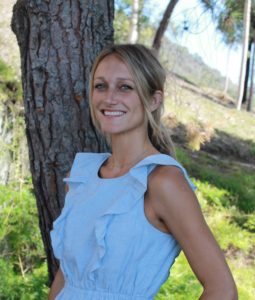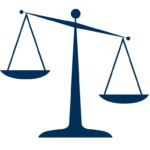Population and Climate Change Course
Presented by Hannah Evans, Communications Manager at Population Connection, this month-long course explores how population, health, and the environment intersect. Each weekly session covered a specific topic meant to provide attendees with a deeper understanding of how population relates to global issues like poverty, sustainable development, access to health care, climate change, and the health of our planet.
An introduction to population studies, this series is particularly useful for anyone interested in volunteering with Population Connection in the future.
About the Presenter
HANNAH EVANS, COMMUNICATIONS MANAGER AT POPULATION CONNECTION
 Before joining Population Connection’s staff, Hannah worked as an adjunct professor of Women’s Studies and taught classes on gender, science, and feminist theory. She has nonprofit experience working as a program developer for sustainable agriculture and public health programs in Honduras and Panama and has worked as a researcher on food security issues throughout southern California. Hannah holds a BA in environmental policy and political science and a Master’s in political ecology from San Diego State University, where her research focused on sustainability labeling and ethical consumption.
Before joining Population Connection’s staff, Hannah worked as an adjunct professor of Women’s Studies and taught classes on gender, science, and feminist theory. She has nonprofit experience working as a program developer for sustainable agriculture and public health programs in Honduras and Panama and has worked as a researcher on food security issues throughout southern California. Hannah holds a BA in environmental policy and political science and a Master’s in political ecology from San Diego State University, where her research focused on sustainability labeling and ethical consumption.
An engaging and interesting presenter and teacher, Hannah works with college-level students and professors to integrate population studies back into the mainstream, with a particular focus on human rights and social justice. She develops and gives comprehensive, solution-oriented presentations focused on the connections between global population growth, access to comprehensive reproductive healthcare, and environmental sustainability. Through an examination of some of the root causes of population growth, her work seeks to highlight the interconnections between poverty, marginalization, women’s rights, and environmental pressures made worse by climate change.
An Introduction to Population and Climate Change
 This course will introduce some of the main links between population growth and climate change. After a brief introduction to historical and current global population trends, the course will explore the ways climate change will likely affect different populations around the world, with a focus on the regions that are projected to grow the fastest over the next 50-100 years. The session will end with an open-ended discussion about the potential social and environmental benefits of slowing population growth.
This course will introduce some of the main links between population growth and climate change. After a brief introduction to historical and current global population trends, the course will explore the ways climate change will likely affect different populations around the world, with a focus on the regions that are projected to grow the fastest over the next 50-100 years. The session will end with an open-ended discussion about the potential social and environmental benefits of slowing population growth.
RECORDING, PRESENTATIONS SLIDES, AND COURSE READINGS
Climate Justice: Why Climate Change Is a Social Justice Issue
Mitigating climate change is one of humanity’s greatest challenges. In keeping with the global movement towards racial justice, this class will introduce and define the concept of “climate justice.” Using specific examples of environmental racism and social inequities, the course will explore what it means to look at climate change as a social justice issue.
RECORDING, PRESENTATIONS SLIDES, ANSWERS FROM THE Q+A, AND COURSE READINGS
Zoonosis: How Does Population Growth Influence Animal-to-Human Pathogen Spillover?
 Using the Covid-19 pandemic as an example, this class will discuss the links between human activity and zoonotic diseases. It will explore how deforestation, habitat destruction, species extinction, wildlife trade, and industrialized agriculture have contributed to zoonotic disease outbreaks by creating ideal environments for animal-to-human pathogen spillovers. The class will end by introducing the “One Health” approach to conservation as a potential way to stop future outbreaks.
Using the Covid-19 pandemic as an example, this class will discuss the links between human activity and zoonotic diseases. It will explore how deforestation, habitat destruction, species extinction, wildlife trade, and industrialized agriculture have contributed to zoonotic disease outbreaks by creating ideal environments for animal-to-human pathogen spillovers. The class will end by introducing the “One Health” approach to conservation as a potential way to stop future outbreaks.
RECORDING, PRESENTATIONS SLIDES, ANSWERS FROM THE Q+A, AND COURSE READINGS
Solutions Through Reproductive Health: Why Family Planning Matters to Climate Change
The final session will investigate the roles that access to reproductive health and family planning, as well as girls’ education, play in climate change mitigation and adaptation strategies. Using data compiled by both climate and social scientists, the course will explore how increased access to education and family planning is key to reaching sustainable development goals and addressing climate change. There will be time at the end of this session for an open-ended discussion of the course as a whole.
RECORDING, PRESENTATIONS SLIDES, ANSWERS FROM THE Q+A, AND COURSE READINGS
